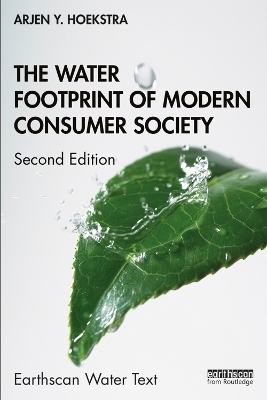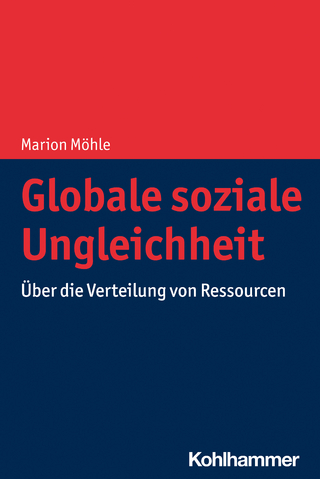
The Water Footprint of Modern Consumer Society
Routledge (Verlag)
978-1-138-35478-4 (ISBN)
Using the water footprint concept, this impactful book aids our understanding of how we can reduce water consumption and pollution to sustainable levels.
Since the publication of the first edition, the question of how to reduce our water footprint has become even more urgent. Freshwater scarcity is increasingly perceived as a global systemic risk and overconsumption of water is widespread. The water footprint, a concept founded by the author, is an indicator of direct and indirect freshwater use by a consumer or producer that can be used to analyze water usage along supply chains and assess the sustainability, efficiency and fairness of our water use. This new edition is fully revised and updated to reflect continued developments in this rapidly growing field of knowledge. New chapters are added covering the history of the water footprint concept; the environmental footprint of the human species versus planetary boundaries; and the human right to water as a foundation to equitable sharing. All other chapters are fully revised with new findings, applications and references, including major new research on energy, vegetarian diets and intelligent water allocation over competing demands.
The Water Footprint of Modern Consumer Society is a key textbook for students of interdisciplinary water studies and those taking other related courses within the environmental sciences. It will also be of interest to those working in the governmental sector, environmental and consumer organizations, the business sector and UN institutions, where there is growing interest in the water footprint concept.
Arjen Y. Hoekstra is Professor in Water Management at the University of Twente, the Netherlands, and co-founder of the Water Footprint Network. As creator of the water footprint concept, he introduced supply-chain thinking in water management and was the first to point at the global dimension of wise water governance.
1. The environmental footprint of the human species 2. A brief history of water footprint thinking 3. Why do we overexploit our limited freshwater resources? 4. Drinking ten bathtubs of water a day 5. Water for bread and pasta 6. Meat and dairy, the biggest water users 7. How our cotton clothes link to a disappearing sea 8. The energy transition: how to combine carbon and water footprint reduction? 9. The overseas water footprint of cut flowers 10. The supply-chain water footprint of paper 11. Sustainability: water footprint caps per water body 12. Efficiency: water footprint benchmarks per product 13. Equitability: fair water footprint shares per community 14. Allocating the world’s limited freshwater resources 15. Getting trade right 16. Product transparency 17. Who will be the heroes of change?
| Erscheinungsdatum | 15.07.2019 |
|---|---|
| Reihe/Serie | Earthscan Water Text |
| Zusatzinfo | 42 Tables, black and white; 21 Halftones, black and white; 63 Illustrations, black and white |
| Verlagsort | London |
| Sprache | englisch |
| Maße | 156 x 234 mm |
| Gewicht | 478 g |
| Themenwelt | Sozialwissenschaften ► Soziologie ► Spezielle Soziologien |
| Technik ► Umwelttechnik / Biotechnologie | |
| Weitere Fachgebiete ► Land- / Forstwirtschaft / Fischerei | |
| ISBN-10 | 1-138-35478-3 / 1138354783 |
| ISBN-13 | 978-1-138-35478-4 / 9781138354784 |
| Zustand | Neuware |
| Haben Sie eine Frage zum Produkt? |
aus dem Bereich


